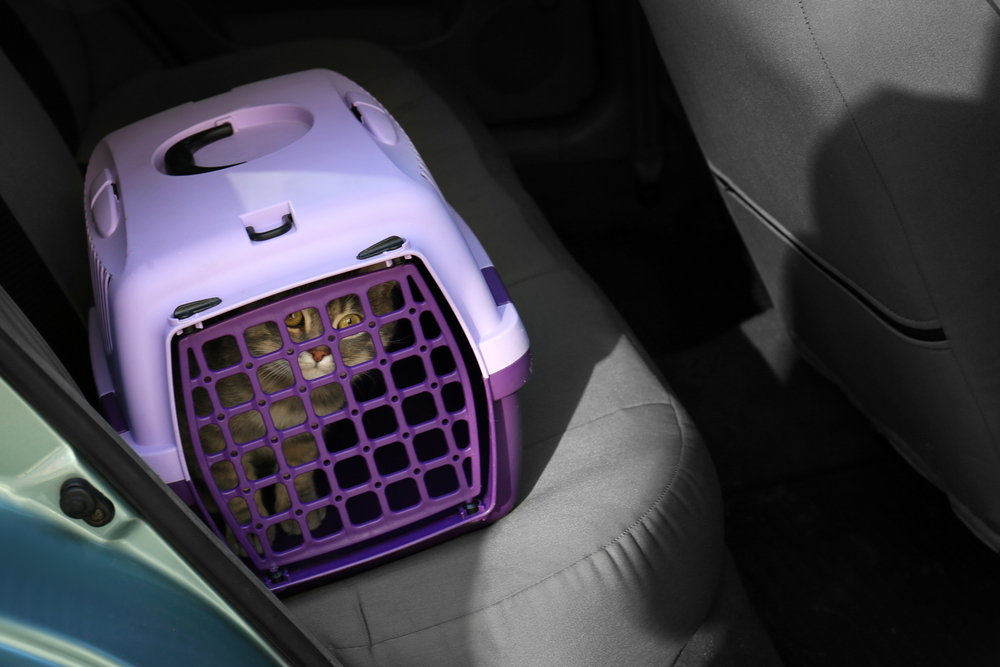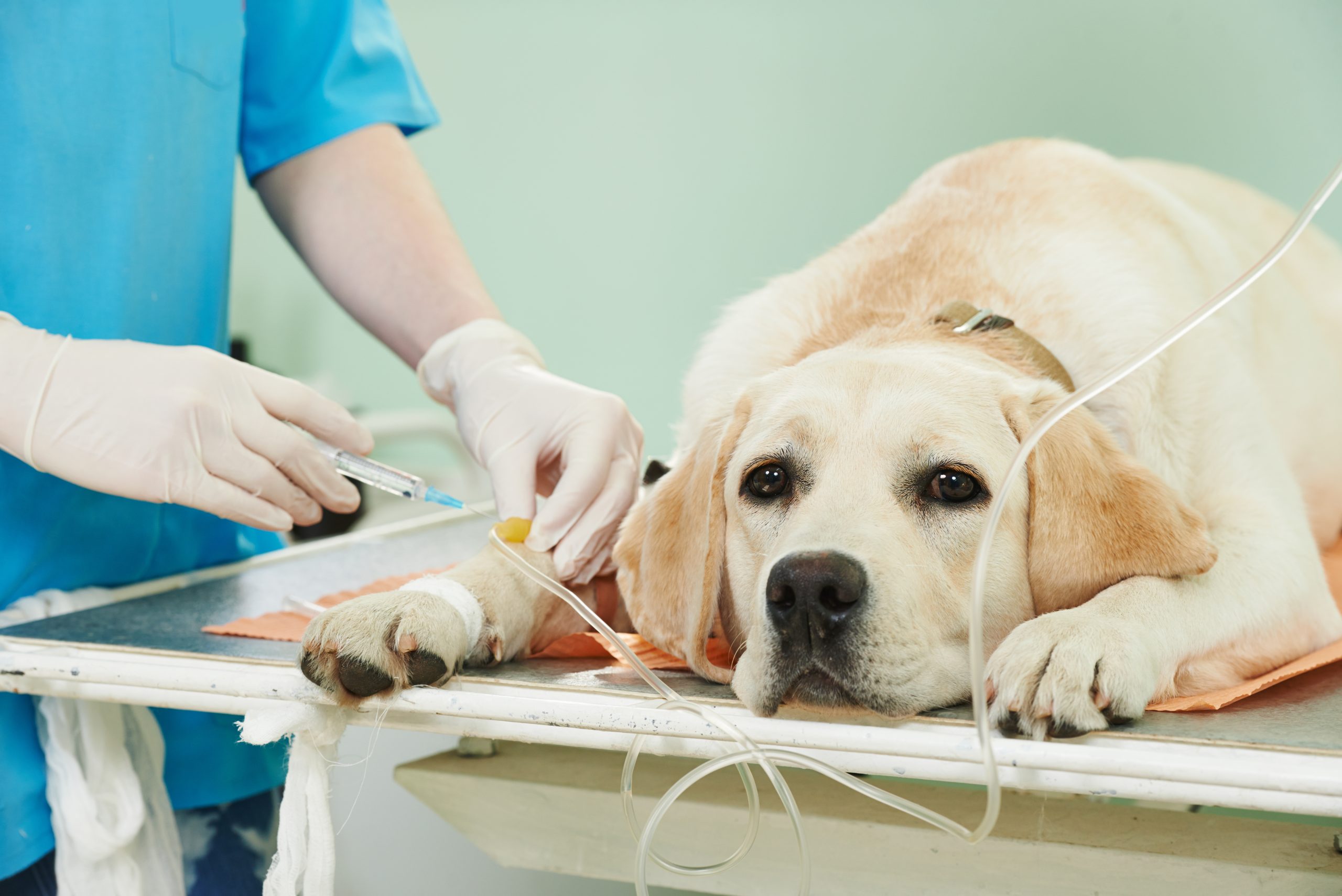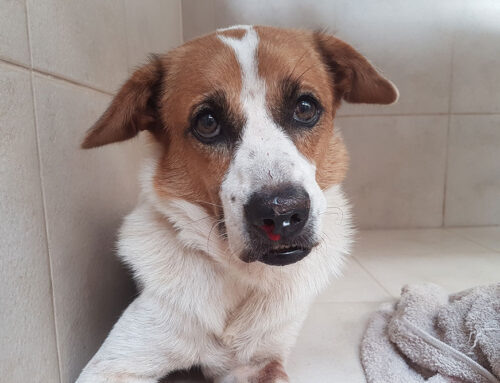At 7 p.m. on Friday evening, your pet vomits. Should you rush them to the emergency veterinary clinic, or is it OK to monitor them until the morning? Knowing when your pet needs emergency veterinary care can help save their life. If you’re concerned about your pet’s condition, read our North Waterloo Veterinary Hospital team’s advice regarding situations that warrant immediate veterinary care.
#1: Your pet is bleeding severely
Heavy or prolonged bleeding is a veterinary emergency. If your pet loses too much blood, they can die, and injuries that result in severe bleeding require immediate veterinary attention. When arteries are punctured or lacerated, bleeding is more serious. These injuries result in bright red blood pumping at a fast rate. If your pet is bleeding heavily or the bleeding doesn’t stop after a few minutes, place pressure on the wound using a clean cloth or sterile gauze, and immediately take them for veterinary care.
#2: Your pet experiences a significant trauma
If your pet experiences a trauma, such as being hit by a car or falling from a high elevation, they need immediate veterinary care. After a traumatic incident, your pet may not exhibit outward physical signs, but they may have sustained a serious internal injury, causing internal bleeding. To ensure your injured pet receives the care they need and pain-relieving medications, a veterinary professional should evaluate your four-legged friend’s condition as soon as possible.
#3: Your pet loses consciousness
Numerous conditions, such as heart abnormalities, hypoglycemia, toxicities, and issues affecting the brain, can cause your pet to lose consciousness. A veterinary professional should evaluate your pet for any condition that causes your furry pal to lose consciousness.
#4: Your pet ingests a toxin
Numerous foods and items commonly found in your home are toxic to pets. If you know or suspect your pet has ingested a toxin, immediately contact Animal Poison Control and seek veterinary care. Be prepared to provide the following information:
- Your pet’s age, breed, and weight
- Details about the substance your pet ingested—keep the label handy
- The ingested substance’s concentration
- The amount of the substance your pet ingested
- When your pet ingested the substance
- Your pet’s signs
#5: Your pet ingests a foreign body
Many pets are prone to swallowing objects such as socks, rocks, and small toys. If you know or suspect your pet ingested a foreign body, they need veterinary attention. The object can easily become lodged in your pet’s gastrointestinal (GI) tract, causing an obstruction. In some cases, your pet may require surgery to have the ingested object removed.
#6: Your pet has difficulty breathing
Any condition that inhibits your pet’s breathing requires immediate veterinary care. Signs include excessive panting, exaggerated abdominal movement when breathing, wheezing, holding the head and neck low and stretched out, incessant coughing, and bluish mucous membranes.

#7: Your pet can’t use their limbs
If your pet experiences paralysis or partial paralysis in one or more limbs, they need immediate veterinary care. Conditions, such as intervertebral disc disease (IVDD), can injure the spinal cord, leading to permanent damage if not addressed promptly.
#8: Your pet has severe gastrointestinal signs
Many pets have the occasional bout of vomiting or diarrhea, which isn’t necessarily a veterinary emergency. GI cases that do require immediate veterinary care include:
- Other signs — If your pet has GI signs accompanied by other signs, such as pain, bloating, lethargy, fever, and inappetence, they need emergency veterinary care.
- Blood — If your pet has blood in their vomit or diarrhea, they need emergency veterinary care.
- Multiple bouts — If your pet has several bouts of GI upset over a short period, a veterinary professional should evaluate them.
- Foreign bodies and toxins — If your pet is exhibiting GI signs and you know or suspect they ingested a foreign body or toxin, they need emergency veterinary care.
- Duration — If your pet experiences GI upset for longer than 24 hours, a veterinary professional should evaluate them.
#9: Your pet is unable to urinate or defecate
An inability to urinate or defecate can lead to a life-threatening situation. Conditions such as severe constipation or a GI obstruction can prevent defecation, and a urethral obstruction can impede urination. If your pet is straining to urinate or defecate, seek veterinary care as soon as possible.
#10: Your pet is suddenly lame
A broken limb or a severe tendon or ligament injury can result in sudden lameness. Affected pets need veterinary care to stabilize the injury and provide pain medication. Delaying treatment can lead to improper healing and arthritis.
#11: Your pet exhibits extreme pain or anxiety
If your pet is vocalizing excessively or acting uncharacteristically anxious, they may be trying to tell you they are in pain. A veterinary professional should evaluate your pet to determine if a medical condition is causing their behavior.
#12: Your pet experiences an eye injury
An injury to your pet’s eye can quickly lead to vision loss if not properly treated. Seek immediate veterinary care if your pet exhibits the following signs:
- Excessive tearing
- Squinting
- Ocular discharge
- Corneal discoloration
- Eye swelling
If you are concerned your pet is experiencing a veterinary emergency, contact our North Waterloo Veterinary Hospital team, so we can determine if they need immediate veterinary care.







Leave A Comment